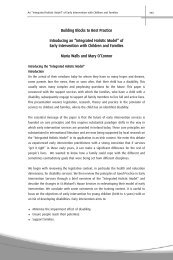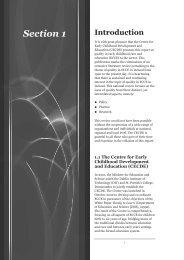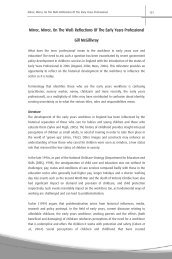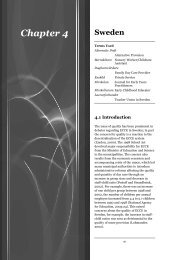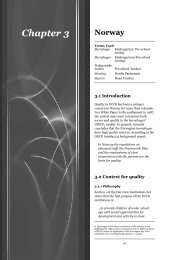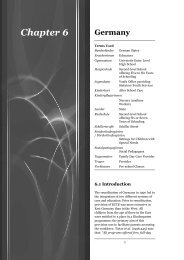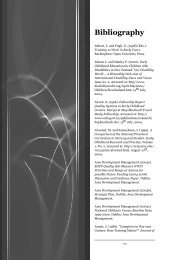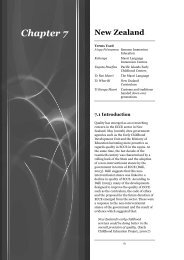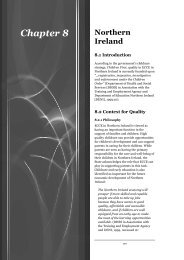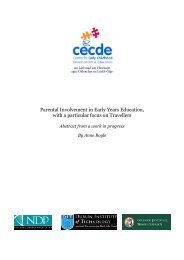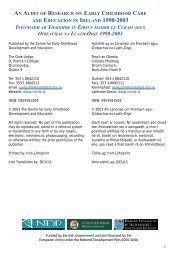Policy Developments 1990-2004 - Centre for Early Childhood ...
Policy Developments 1990-2004 - Centre for Early Childhood ...
Policy Developments 1990-2004 - Centre for Early Childhood ...
Create successful ePaper yourself
Turn your PDF publications into a flip-book with our unique Google optimized e-Paper software.
Section 4<strong>Policy</strong> <strong>Developments</strong> <strong>1990</strong>-<strong>2004</strong>5. It is important to acknowledge cultural variations in the definition, assessment andinterpretation of quality.6. Quality is a relative and subjective concept that should be seen as a dynamic andcontinuous process as opposed to a product.7. An appropriate curricular framework is an inherent characteristic of a quality service.8. The af<strong>for</strong>dability of services is a component of quality in ensuring they are accessibleto all children.9. Quality is also impacted upon by the accessibility of services in all geographical areas,both urban and rural.10. The quality of a service is also determined by its inclusion of children with specialneeds within the setting.11. Parental and community links with the setting is a strong indicator of quality.12. The ability <strong>for</strong> services to be flexible and to accommodate diversity is also animportant characteristic of quality.Assessing Quality:1. The inspection of physical resources within settings is an important indicator ofquality services.Supporting Quality:1. The financing and resourcing of the ECCE sector is imperative to ensure that qualityin services is achieved.2. Advice and support internally and from external sources is a vital support in ensuringquality services are achieved.3. There is need <strong>for</strong> ongoing research and development to in<strong>for</strong>m and underpinprogress within ECCE services to ensure they remain dynamic and evolutionary.4. The support of quality is particularly important in the Irish context where thein<strong>for</strong>mal childcare sector is particularly large in international terms.4.8 Policies Relating toNon-Statutory AgenciesThe non-statutory element of ECCE inIreland had remained under resourced andconsequently, underdeveloped <strong>for</strong> manyyears in Ireland. The economic changes asoutlined earlier catalysed the developmentof the sector and there has been a myriad ofactivity by a multiplicity of organisationsand agencies in recent years. Theinfrastructure relating to much of the ECCEsector is in its infancy at present, and thus,while there is much activity in relation toquality, there is a scarcity of documentedpolicy publications at this time. Manyorganisations are in the process ofproducing such documents but they are asyet not complete <strong>for</strong> inclusion in this review(see Table 1, page 5).This section begins by documenting thepolicies of the NVCOs, followed by a briefoverview of policies emanating from thecommunity sector. Due to the diverse arrayof organisations involved both directly andindirectly with ECCE, it is not feasiblewithin the confines of this review to includeall policies produced on ECCE in the pastfourteen years. The most prominent, thoseutilised widely and with universal39



